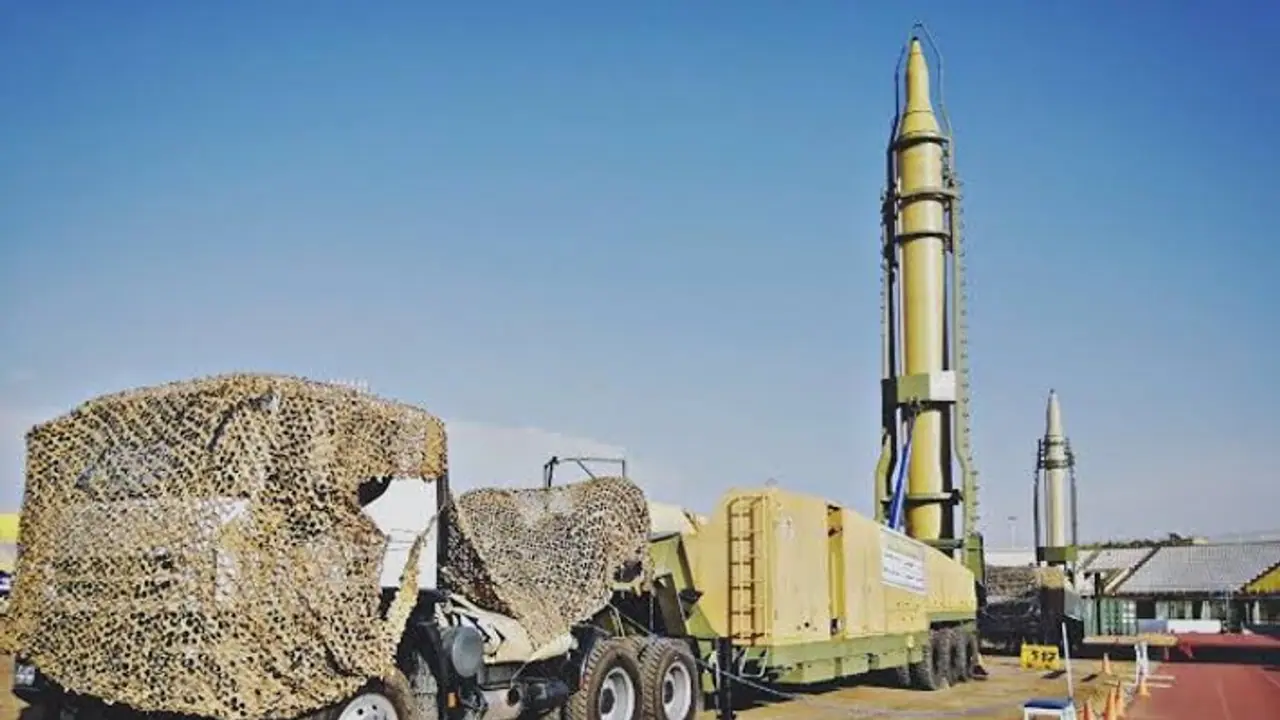In a significant escalation of hostilities between Hezbollah and Israel, the Iran-backed militant group claimed responsibility for a missile attack on Israel early Wednesday morning.
In a significant escalation of hostilities between Hezbollah and Israel, the Iran-backed militant group claimed responsibility for a missile attack on Israel early Wednesday morning. Hezbollah announced that it launched a “Qader 1” ballistic missile targeting Mossad’s headquarters located outside Tel Aviv.

The group justified the strike as retaliation for the alleged assassination of its top commanders and a series of explosions in Lebanon, which Hezbollah attributed to Israeli Mossad operations involving pagers and walkie-talkies. These explosions reportedly killed 42 people, including children, and left thousands injured.
Sirens rang out across central Israel, particularly in Tel Aviv, as residents rushed to bomb shelters amid the missile warning. However, no casualties or structural damage were reported. The Israeli Defense Forces (IDF) later confirmed that their defense systems successfully intercepted the missile before it could reach its target.
Following Hezbollah’s missile strike, the IDF launched a retaliatory attack, striking a Hezbollah missile launcher in southern Lebanon's Nafakhiyeh region. According to Israeli military officials, the launcher was the source of the surface-to-surface missile fired earlier in the day. The IDF operation is part of ongoing efforts to neutralize Hezbollah’s capabilities and prevent further attacks on Israeli territory.
The missile attack by Hezbollah is the latest in a series of violent exchanges between the two sides. Hezbollah has increasingly targeted northern Israel with rocket fire, which has prompted Israeli airstrikes on Hezbollah positions in southern Lebanon. This escalating conflict has severely affected civilian populations on both sides of the border, with large-scale evacuations underway in northern Israel and southern Lebanon.
Lebanon is facing a mounting humanitarian crisis, with the number of displaced citizens surging dramatically as a result of the ongoing conflict. Abdallah Bou Habib, Lebanon’s foreign minister, revealed that the number of displaced Lebanese has reached nearly half a million, up from 110,000 since early October. The situation has worsened in recent weeks due to Israel’s intensified military operations following Hezbollah’s continued rocket attacks.
Bou Habib voiced deep concern over the devastation being wrought by the conflict, not only within Lebanon but also in northern Israel, where thousands of civilians have been forced to leave their homes. He questioned the purpose of the ongoing violence, asking, “All for what?” as he reflected on the broader damage to both nations.
Lebanon’s government has placed significant hopes on the United States to mediate an end to the conflict between Hezbollah and Israel. Foreign Minister Bou Habib emphasized that the US is the only nation with the political influence and diplomatic leverage necessary to bring about a ceasefire. He expressed disappointment, however, in President Joe Biden’s recent speech at the United Nations, criticizing it for being insufficiently forceful in addressing Lebanon’s plight.
"It was not strong, it is not promising, and it would not solve the Lebanese problem … We are still hoping. The United States is the only country that can really make a difference in the Middle East and with regard to Lebanon," he said.
In his address to the UN General Assembly, President Biden called on Israel to avoid an all-out war while simultaneously blaming Hezbollah for initiating the conflict with an unprovoked attack on Israel on October 7. Biden stated that the US was working toward a diplomatic solution that would allow both Lebanese and Israeli residents of border areas to return to their homes. However, Iranian diplomats reportedly claimed that US officials had privately acknowledged they were powerless to stop Israel’s ongoing bombardment of Hezbollah targets in Lebanon.
Despite Hezbollah’s missile attacks, Lebanon's foreign minister expressed confidence that Iran, which is known to provide financial and military backing to Hezbollah, was not seeking to escalate the conflict into a full-scale war. “I don’t think they want to be involved in a war,” Bou Habib remarked, suggesting that Iran’s involvement in the conflict remains limited to its support of Hezbollah rather than a direct confrontation with Israel.
